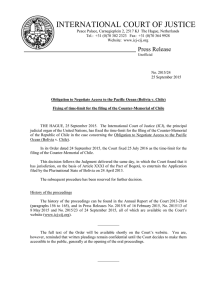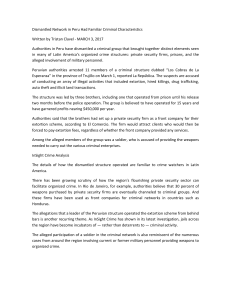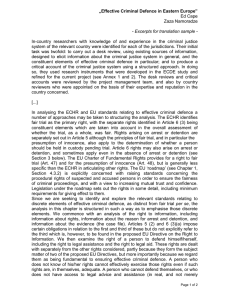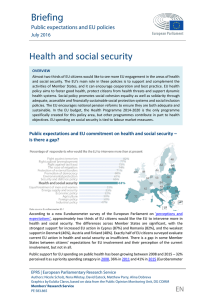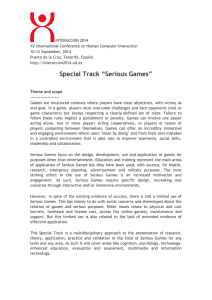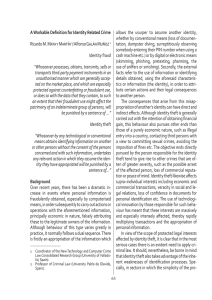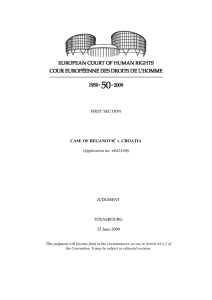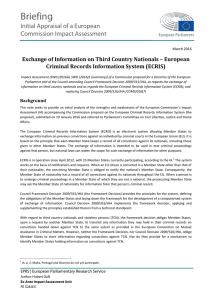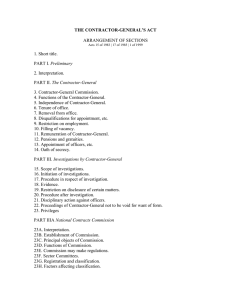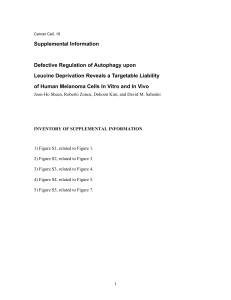EP Research Service - European Parliament
Anuncio
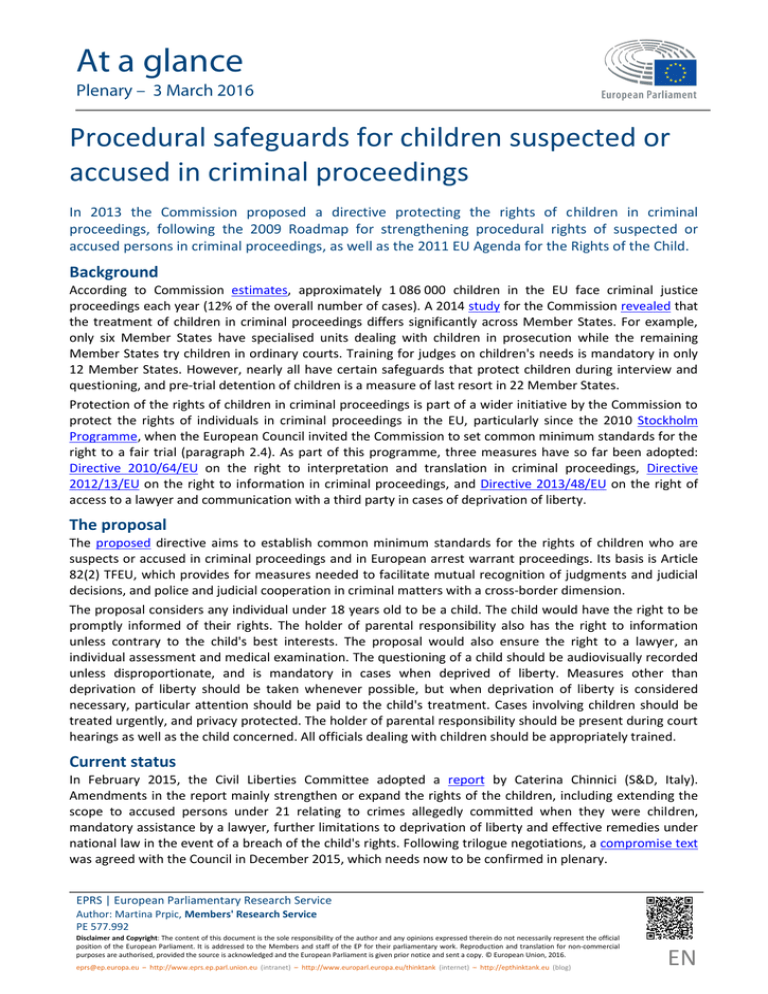
At a glance Plenary – 3 March 2016 Procedural safeguards for children suspected or accused in criminal proceedings In 2013 the Commission proposed a directive protecting the rights of children in criminal proceedings, following the 2009 Roadmap for strengthening procedural rights of suspected or accused persons in criminal proceedings, as well as the 2011 EU Agenda for the Rights of the Child. Background According to Commission estimates, approximately 1 086 000 children in the EU face criminal justice proceedings each year (12% of the overall number of cases). A 2014 study for the Commission revealed that the treatment of children in criminal proceedings differs significantly across Member States. For example, only six Member States have specialised units dealing with children in prosecution while the remaining Member States try children in ordinary courts. Training for judges on children's needs is mandatory in only 12 Member States. However, nearly all have certain safeguards that protect children during interview and questioning, and pre-trial detention of children is a measure of last resort in 22 Member States. Protection of the rights of children in criminal proceedings is part of a wider initiative by the Commission to protect the rights of individuals in criminal proceedings in the EU, particularly since the 2010 Stockholm Programme, when the European Council invited the Commission to set common minimum standards for the right to a fair trial (paragraph 2.4). As part of this programme, three measures have so far been adopted: Directive 2010/64/EU on the right to interpretation and translation in criminal proceedings, Directive 2012/13/EU on the right to information in criminal proceedings, and Directive 2013/48/EU on the right of access to a lawyer and communication with a third party in cases of deprivation of liberty. The proposal The proposed directive aims to establish common minimum standards for the rights of children who are suspects or accused in criminal proceedings and in European arrest warrant proceedings. Its basis is Article 82(2) TFEU, which provides for measures needed to facilitate mutual recognition of judgments and judicial decisions, and police and judicial cooperation in criminal matters with a cross-border dimension. The proposal considers any individual under 18 years old to be a child. The child would have the right to be promptly informed of their rights. The holder of parental responsibility also has the right to information unless contrary to the child's best interests. The proposal would also ensure the right to a lawyer, an individual assessment and medical examination. The questioning of a child should be audiovisually recorded unless disproportionate, and is mandatory in cases when deprived of liberty. Measures other than deprivation of liberty should be taken whenever possible, but when deprivation of liberty is considered necessary, particular attention should be paid to the child's treatment. Cases involving children should be treated urgently, and privacy protected. The holder of parental responsibility should be present during court hearings as well as the child concerned. All officials dealing with children should be appropriately trained. Current status In February 2015, the Civil Liberties Committee adopted a report by Caterina Chinnici (S&D, Italy). Amendments in the report mainly strengthen or expand the rights of the children, including extending the scope to accused persons under 21 relating to crimes allegedly committed when they were children, mandatory assistance by a lawyer, further limitations to deprivation of liberty and effective remedies under national law in the event of a breach of the child's rights. Following trilogue negotiations, a compromise text was agreed with the Council in December 2015, which needs now to be confirmed in plenary. EPRS | European Parliamentary Research Service Author: Martina Prpic, Members' Research Service PE 577.992 Disclaimer and Copyright: The content of this document is the sole responsibility of the author and any opinions expressed therein do not necessarily represent the official position of the European Parliament. It is addressed to the Members and staff of the EP for their parliamentary work. Reproduction and translation for non-commercial purposes are authorised, provided the source is acknowledged and the European Parliament is given prior notice and sent a copy. © European Union, 2016. [email protected] – http://www.eprs.ep.parl.union.eu (intranet) – http://www.europarl.europa.eu/thinktank (internet) – http://epthinktank.eu (blog) EN
